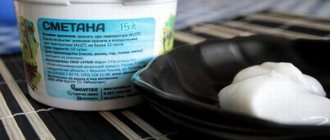There are food products that are constantly in the house and are used to prepare a variety of dishes. But in order to avoid poisoning, the food storage process must be correct. This also applies to eggs. Of course, they should always be kept in a cool place, such as a refrigerator. But there are times when it is absent for various reasons and the question arises: how to store eggs without a refrigerator?
Eggs can be kept outside the refrigerator, but only for a certain period of time and in compliance with the correct storage technology. If these requirements are neglected, the products will quickly deteriorate, lose their taste and become unsafe to eat.
You should know it
Nutritional value of chicken eggs
The special value of eggs is in vitamin U (the initial letter of the word Ulcus is ulcer). This substance (chemists call it methylmethionine) promotes the healing of stomach and intestinal ulcers. In addition, without it, the synthesis of B vitamins is impossible.
Vitamin U is found in many green vegetables (spinach, asparagus, cabbage), but we rarely eat them fresh, especially in winter. When heated, the vitamin decomposes. In summer there is no particular shortage of it, but in winter, raw yolk is sometimes the only source of the most beneficial substance.
To provide the body with valuable components, you need to know how long eggs are stored and adhere to the requirements for storage conditions.
Dietary and table eggs
There are no differences in storage conditions for dietary and table eggs. The product remains dietary for 7 days from the moment it is received from the chicken. Then it goes into the dining room category.
A chicken egg is able to tell about itself if it is labeled. The stamping method should indicate on it:
1. For dietary:
- view (D);
- sorting date (day and month);
- category (B – highest, 0 – selective, 1, 2, 3).
2. For canteens:
- view (C);
- category (B,0,1,2,3).
If an egg is not marked, it is impossible to determine what species it is.
Categories of chicken eggs depending on their weight
To wash or not to wash eggs?
Most people answer this question positively, because these are basic hygiene rules. But in fact, you cannot wash eggs before storing them. Why? Because during this, the protective layer is washed off from them, which significantly extends the shelf life.
Eggs in their “natural” form are stored for a month or more, and cleanly washed eggs no more than 4-5 days.
But before using, the shells must be washed very thoroughly. Otherwise, there is a risk of salmonellosis infection. You don’t just need to rinse them under the tap, but wash them using a brush or sponge.
Storage conditions and periods according to GOST and SanPiN
GOST regulates temperature and humidity levels at the storage location. If the temperature there is from 0 to 20 °C and the humidity is within 85–88%, then the timing is as follows:
- dietary products are stored for only 7 days;
- canteens – no more than 25 days;
- washed – up to 12 days.
If the temperature is from -2 to 0 °C at the same humidity, then the food product is stored for up to 90 days.
The chemical composition of the shell is such that it is highly porous. The egg is breathing. It releases gases and dries out over time. The air chamber becomes larger.
Eggshells allow gases to pass inside, and along with them odors. Therefore, GOST does not allow storing eggs in poorly ventilated areas, or near strong-smelling substances.
Another regulatory document, SanPiN, regulates the rules for storing chicken eggs in public catering organizations. According to this document:
- Unprocessed eggs are not brought into the preparation workshop. They are stored in storerooms.
- Before use, they are treated in special vats with a 1–2% solution of soda ash. Next, use a 0.5% chloramine solution or other acceptable detergent, then rinse with cold water. They are placed in containers and only in this form are they brought into the workshop.
- To prepare fried eggs and creams, only dietary eggs are used (no older than 7 days from the date of laying).
- If an omelet is served, it is prepared immediately before consumption and is stored for only 30 minutes after cooking.
- The product is stored at catering establishments at a temperature not exceeding 6 °C. Before use, a selective ovoscopy must be performed. Next, an organoleptic test of the contents is carried out for appearance and smell.
We answer the question: how long can egg melange be stored?
Egg mass (melange) can be stored in the refrigerator for no more than 8 hours if it is used for cream. And 24 hours if used for preparing semi-finished products.
Traditional methods
Storing eggs is a rare case when traditional methods really work. So, there are several popular ways to extend the shelf life of eggs:
Fat
Peasant women came up with the idea of lubricating eggs with fat to ensure their preservation several centuries ago. The instructions for properly greasing eggs have not changed since then, but surprisingly everything still works. Fat fills the micropores on the shell and because of this, bacteria cannot penetrate there.
Instructions for greasing eggs:
- Place oats in the bottom of a wooden box;
- Melt the fat, cool, thoroughly coat each egg with it;
- Place eggs, pointy end down, in several rows;
- Top the eggs with oats and leave in the cellar;
Egg white
Lubricating eggs with protein is a fairly popular way to extend their shelf life. So, you need:
- Apply 6-10 layers of protein to the shell, applying a new layer only after the previous one has completely dried.
- After drying, wrap each egg in a paper towel or napkin.
- Place the eggs in one row in a box and send them to the cellar.
Paraffin/wax
Wax, like paraffin, has the ability to fill micropores on the shell, thus creating protection against various microorganisms. To do this you need:
- Melt the wax/paraffin and cool slightly.
- Carefully dip the eggs into the liquid.
- Afterwards, you need to cool the eggs in the refrigerator until the wax/paraffin completely hardens.
- Wrap each egg in newspaper and send it to the cellar.
Potassium permangantsovka
Potassium permanganate has disinfecting properties and also kills bacteria. Potassium permanganate is especially relevant when processing eggs of questionable quality. Eggs need to be dipped for 5-10 seconds in a saturated solution of potassium permanganate. You can then store them anywhere
How to store raw
The shelf life of eggs at home does not differ from those in production. Before purchasing, you should carefully consider the labeling.
To wash or not to wash?
Eggs need to be washed. Many people have heard about such a disease as salmonellosis. This is a dangerous toxic infection. To avoid infection, people deny themselves raw whites and yolks - this is wrong. Salmonella does not live in eggs. This is a practically sterile product.
Salmonella lives in the bird's body, and eggshells are contaminated with microflora
By washing eggs, we make them safe for consumption.
- If you brought one dozen from the store, you can wash it under warm running water and baby soap. Rinse with clean water and leave on a towel until dry. Next, the product is sent to the refrigerator shelf. It is stored for up to 12 days, but not from the moment it is placed in the refrigerator, but from the moment it is laid by the chicken (pay attention to the labeling).
- If eggs are purchased for future use, in 2-3 trays, then they are washed as needed. The trays are installed in a dark, cool closet. They are stored for no more than a month. If necessary, the eggs are washed, dried and placed in the refrigerator.
Do you know that…
At large enterprises, veterinary and sanitary control and the salmonella program operates at several levels (from droppings, litter to washes from equipment and shells). This makes an epidemiological breakthrough impossible. A completely different matter is a farm product where there is no proper control - anything is possible here.
How to store in the refrigerator
The shelf life of chicken eggs in the refrigerator cannot exceed a month. There is no difference:
- which end to store (blunt or sharp);
- on which shelf (top, bottom, side);
- in what container (box, pan, bowl).
The main thing remains that they must be washed. If you drink raw eggs from their shells, you should wash them again before consuming them.
Ways to preserve without refrigeration
- If there are a lot of chicken eggs and there is no refrigerator, they are stored in pantries or cabinets where the temperature does not exceed 20 °C. The place should not have substances with foreign odors.
- In rural areas, the eggs are placed in the cellar in a container covered with a lid, and a cloth is thrown over the top. This way they won't smell like vegetables and the cellar.
Before consuming eggs, you need to beat them one by one into a separate container and analyze each one. Only after making sure that the product is of good quality can it be consumed.
Is it possible to save for a long time: myths and reality
You can store chicken eggs for 3 months, but only if the temperature does not exceed 0 °C. Since it is impossible to achieve such temperature indicators at home, the shelf life of the testicles cannot exceed a month.
There are various myths among people saying that eggs can be:
- store in salt, rice;
- pour paraffin;
- wipe with vegetable oil, etc.
All these methods have not found real evidence of storage efficiency. Temperature is the only thing that will ensure the safety of the product.
Features of storing domestic eggs
A domestic egg, if the chicken is not fed feed, is the most valuable product. Compound feeds contain many components (preservatives, stabilizers, pigments, etc.) that are not beneficial. Moreover, they are harmful.
Unfortunately, the state cannot control everything that the manufacturer puts into the feed. Therefore, homemade eggs obtained on natural feed (cereals, succulent feed, skimmed milk, hay) are a very valuable food product. However, there is a danger here too.
No one controls the condition of domestic chickens. The risk of contracting salmonellosis increases. However, if you immediately wash an egg brought from the market, everything will be sterile.
Tip of the day
You can ask the seller if the chickens are laying eggs well - a sick bird does not lay eggs.
Finding out when an egg is laid is difficult. But, taking a closer look at it, you can find out the following:
- A fresh egg, if it is not washed, is matte and has no shine.
- If it's dirty, don't buy it (a dirty chicken coop is not safe).
Homemade eggs are more expensive, but they are worth it. If you have a permanent, trusted supplier, take care of him. Don't buy too much at once. Before consumption, just like store-bought ones, knock them into a container and consume only after making sure they are of good quality.
The shelf life of raw homemade eggs in the refrigerator is the same as in store-bought eggs – a month.
Homemade eggs from chickens that eat natural feed will all be different colors (lighter, darker, except white)
Useful tips
To prevent premature decay, the following rules must be followed:
- Wash shells only before eating or preparing the product.
- When storing, place the eggs separately, avoiding their contact.
- When choosing, carefully inspect the shell, checking its integrity and cleanliness.
- Store containers with the product in areas with low temperature and humidity (cellar, pantry, etc.), separately from raw fish, meat and products with a strong aroma.
If there are spots of dry droppings on the shell, they can be wiped off with a soft, dry cloth. Dried dirt is washed off with warm running water, using soda, soap or a special disinfectant.
The egg is then dried with a paper towel and stored separately from those intended for long-term storage. After cleaning, it remains fresh for no longer than 4-8 days.
How long and how to store soft-boiled, hard-boiled
According to SanPiN, boiled eggs are stored for no longer than 36 hours in catering establishments.
- In a refrigerator. At home (it makes no difference how it is cooked: soft-boiled or hard-boiled), the shelf life is up to 2 days. The egg is peeled before consumption.
- No refrigerator. How long boiled eggs can be stored without refrigeration is not even discussed - not at all. We cooked it and ate it warm, or made a salad and ate it. If it doesn’t work, put it in the refrigerator immediately.
How to check the suitability of chicken eggs
Dispelling the myths that eggs need to be immersed in salt water, vinegar, and so on for testing, it should be said that only the organoleptic content of the contents can determine whether it is fit for consumption.
Beat the egg onto a flat plate. Fresh will have:
- thick, clear-cut yolk;
- dense, jelly-like protein;
- some part of a rare protein substance.
The older the egg, the rarer and more watery the white becomes. However, it is edible if:
- the yolk has clear boundaries;
- there is no foreign smell of rottenness (hydrogen sulfide).
We recommend reading: Shelf life and storage conditions of quail eggs: myths and reality.
conclusions
- Chicken eggs are a source of vitamin U. But they can also cause a dangerous disease - salmonellosis.
- To protect yourself from infection, it is enough to wash your eggs before placing them in the refrigerator.
- Eggs are perfectly stored even without refrigeration. The main thing is to observe the temperature regime.
- The boiled product is stored for no more than 2 days and must be stored in the refrigerator.
- The suitability of eggs can be assessed only by freeing them from the shell, by the state of the white and yolk, and by their smell.
Store correctly and be healthy!
Checking freshness
A simple way to determine the freshness of a product is to place eggs in water. What is edible will sink, and what is rotten will float.
To purchase unspoiled eggs in a store, you need to be guided by several characteristics of a good product:
- there are no chips or cracks on the shell, even small ones;
- uniform color;
- weight corresponds to the size of the product;
- each sample must be marked;
- no smell.
If you notice cracks, dirt, or traces of blood on chicken eggs in a store, you should immediately refuse such a purchase.











